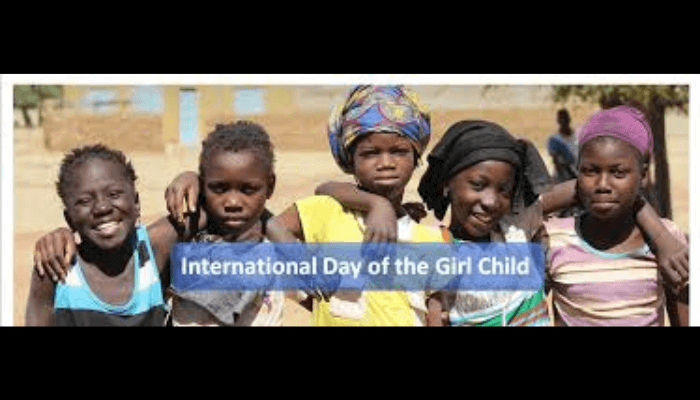Crisis-Ready Girls: 9 things every girl should know
When we talk about crisis preparedness, we often think about water, flashlights, and first aid kits. But what about the specific things that keep girls safe, informed, and empowered when everything falls apart?
International Day of the Girl Child, observed every October 11th, highlights the unique challenges girls face worldwide—and this year’s theme, “The girl I am, the change I lead: Girls on the frontlines of crisis”, hits differently when you realize how unprepared most communities are for girls’ specific needs during crisis. Whether it is climate disasters, conflict, or sudden attacks, girls are not just surviving these moments, they are leading through them. But they need the right tools first.
Here is what every girl deserves to have in place before a crisis hits.
A trusted adult outside your household
Natural disasters and emergencies can separate families in an instant. Every girl should have at least one trusted adult—an aunt, teacher, family friend, or mentor—who knows her well and lives in a different location. Exchange contact information, discuss emergency meeting points, and make sure this person knows they are your backup. It is not paranoia; it is having a safety net when you need it most.
Basic financial literacy
Money talks, especially in a crisis. Understanding how to budget, save, and manage resources is not just adult stuff, it is survival. Keep a small emergency fund if possible, even if it is just ₦100 hidden safely on a daily basis. Know where important financial documents are stored. If you are old enough, have your own bank account. When systems fail, girls with financial knowledge can help their families make critical decisions.
Menstrual products (and knowledge about alternatives)
Period poverty becomes a crisis within a crisis. Stock up on menstrual products as part of your emergency kit, but also learn about reusable options like menstrual cups or period underwear that do not rely on supply chains. Know how to improvise safely if needed. Your period does not pause for emergencies, and you should not have to sacrifice dignity or health because no one thought to include this in disaster planning.
A network of peers who have your back
Your friends are not just for fun, they are your crisis response team. Build genuine connections with other girls and young people in your community. Exchange multiple ways to contact each other beyond social media. During emergencies, peer networks often mobilize faster than official systems. Girls who organize together protect each other, share resources, and create solutions that adults might overlook.
Self-defense skills and body autonomy knowledge
Unfortunately, crises can increase risks of violence and exploitation. Every girl deserves basic self-defense training and a deep understanding of bodily autonomy. Know that you have the right to say no, to set boundaries, and to ask for help. Recognize warning signs of unsafe situations. Understand that your safety matters, and seeking protection is not weakness.
Essential documents (copies and digital backups)
Identity documents, medical records, school certificates, these pieces of paper prove who you are and open doors when you are rebuilding. Make copies of everything important and store them separately from originals. Take photos of documents and save them in a password-protected cloud account. Girls without documentation become invisible in humanitarian systems, losing access to education, healthcare, and protection.
Basic medical knowledge
Know your blood type, allergies, and any medical conditions. Learn CPR and basic first aid. Keep a small kit with any prescription medications, glasses, or specific health supplies you need. If you manage a chronic condition, or need mental health support, have at least a week’s supply of whatever keeps you functioning. Medical systems collapse quickly in disasters, and girls are often last in line for care.
Practical skills that do not require electricity
Can you start a fire safely? Cook without modern appliances? These are not old-fashioned skills, they are crisis essentials. Learn basic repairs, knot-tying, food preservation, and other practical knowledge. Girls with these skills become community leaders during emergencies, not dependents waiting for rescue.
Voice and permission to use it
This might be the most important thing on the list. Practice speaking up in normal times so you can do it when stakes are high. Know that your ideas matter, your concerns are valid, and your leadership is valuable. Too many emergency responses ignore girls completely. Don’t wait for someone to ask your opinion—offer it. Your perspective as a young person experiencing the crisis firsthand is exactly what response teams need to hear.

